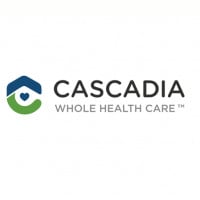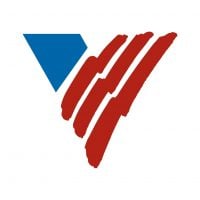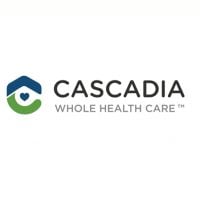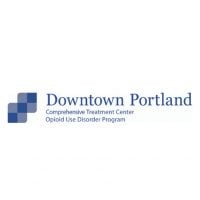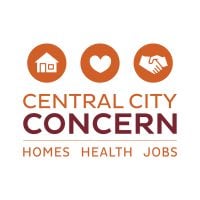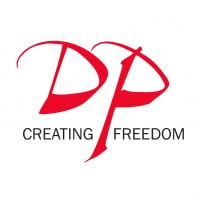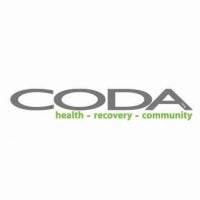Tree House Recovery
Drug Rehab Center in Portland, Oregon
Tree House Recovery is an accredited, Joint Commission on Accreditation of Healthcare Organizations-approved addiction treatment facility located in Portland, Oregon, offering multiple levels of care and specialized services.
About This Oregon Facility
Tree House Recovery, located in Portland, Oregon, is a drug and alcohol rehab that provides inpatient addiction treatment and sober living for men. With a focus on individualized care, Tree House Recovery offers a unique approach to addiction treatment.
- Eight signature strategies, including addiction education, process groups, one-on-one therapy, writing therapy, ESM fitness therapy, ABI therapy, yoga therapy, and recovery in action, are carefully chosen to address each client's personal strengths and needs.
- Exercise is a key component of the treatment program, combining circuit training and weight training to create challenging workouts that build confidence and promote a sense of renewed health.
- Action-based induction therapy (ABI) is utilized, often through mixed martial arts, to target the prefrontal cortex and treat addiction by engaging in activities that require quick thinking, coolheadedness, and moral decision-making.
Tree House Recovery is accredited by the Joint Commission on Accreditation of Healthcare Organizations (JCAHO), ensuring high standards of care. The program is designed to provide a sustainable recovery that translates to successful reintegration into the community.
The facility specializes in treating alcoholism, substance abuse, opioid addiction, and other forms of drug addictions. Tree House Recovery offers a range of evidence-based therapies, including yoga therapy, group therapy, trauma therapy, experiential therapy, and creative arts therapy, to support individuals in achieving their recovery goals.
Genders
Ages
Modality
Additional
Accreditations

JCAHO
Conditions and Issues Treated
Substance abuse is defined by the continued use of drugs or alcohol despite negative consequences, such as legal or work problems. It can be treated using a variety of services, including therapy and medication.
Substance abuse treatment is beneficial for:
- People who have been using drugs or alcohol for a long time.
- People who have been using drugs or alcohol to cope with stress, anxiety, or depression.
- People who have a mental health disorder in conjunction with substance abuse.
- People who continue to use drugs or alcohol despite the harmful effects they cause on their own life and the lives of others.
- People who have had multiple failed attempts at recovery without medical assistance.
If you believe that addiction treatment is right for you or a loved one, you can contact your primary care physician, or search for addiction treatment centers in your area. Treatment is beneficial to people who are motivated towards recovery, and who understand the benefits of professional care.
Opioid addiction is the result of repeated use, or abuse, of opioid drugs. It is recommended for people who are dependent on opioids, or who have a high risk for dangerous health concerns, to seek professional treatment. Treatment plans usually include behavioral therapy and medication-assisted treatment.
Opioid drugs include: fentanyl, heroin, methadone, oxycodone, and oxymorphone.
Opioid addiction treatment is beneficial for:
- People who have a history of severe withdrawal.
- People with a high risk for dangerous health concerns.
- People having difficulty overcoming opioid addiction on their own.
Levels of Care Offered at Tree House Recovery
This center offers a variety of custom treatment tailored to individual recovery. Currently available are Inpatient, Intensive Outpatient, Outpatient, with additional therapies available as listed below.
Inpatient treatment is the most intensive level of care, and it’s necessary for those who aren’t able to control their addiction. These patients also must be drug-free before attending inpatient programs .
During inpatient treatment, addicts live at an inpatient facility 24 hours a day while receiving help. This type of program is generally recommended for those who need to go through detoxification or who are struggling with serious addiction-related issues.
An Intensive Outpatient Program (IOP) is a form of drug treatment that allows individuals to receive the therapy they need while remaining in their homes and community.
An IOP is typically 3-5 days per week, at least 4 hours each day of treatment. Treatment can last for a few months or longer, depending on the situation.
An IOP is a step down from an inpatient treatment center and can be used as a step down from an inpatient stay or as a more intense form of outpatient treatment. IOPs allow for the flexibility to continue working and living at home while still meeting treatment demands.
The outpatient programs in Portland, OR are for those addicted drugs or alcohol. The goal of the outpatient rehabilitation program is to make them stop abusing drugs or alcohol, reduce drug use or addictive behaviors, and become entirely sober. It is generally required to attend the outpatient program for 10-12 hours every week.
Patients can be administered on-the-spot medication to ease withdrawal symptoms such as anxiety, increased heart rate, and even depression. Groups such as Alcoholics Anonymous (AA) and Narcotics Anonymous (NA) can be used as a part of outpatient treatment to help maintain sobriety.
Therapies & Programs
People in addiction recovery can benefit from individual therapy. This type of therapy involves meeting with a therapist one-on-one. This allows for a personal and trusting relationship to be built so that the patient can be truly themselves and express any emotions they feel. Individual therapy leads to greater understanding and peace about your triggers for addiction and coping strategies to prevent relapse.
Group therapy sessions are held in rehab facilities, clinics, churches or community centers that offer drug addiction treatment. People who attend these groups are encouraged to voice their feelings and support other addicts in recovery. This helps group members strengthen their own recovery program while cheering on others who are struggling with sobriety.
Group therapy sessions provide recovering addicts with a chance to cope with everyday situations that many face. Group therapy sessions are held in rehab facilities, clinics, churches or community centers that offer drug addiction treatment.
People who attend these groups are encouraged to voice their feelings and support other addicts in recovery. This helps group members strengthen their own recovery program while cheering on others who are struggling with sobriety.
If you’re looking for addiction treatment, it’s important to find a facility that offers trauma therapy. This type of therapy helps people process and understand the past traumas that have led to their addiction. Trauma therapists will work with clients to help them understand their past and present relationships and show them that they are worthy of love. This therapy is typically done using visualization, discussion, and writing down thoughts and feelings.
Trauma Therapy is a form of therapy that involves working with a patient to help them process and understand the past trauma(s) in their life. This therapy is typically done using techniques such as visualization, discussion, and writing down thoughts and feelings. The main goals of trauma therapy is to help clients express their emotions and talk about what they are feeling.
Patient Experience
Creative Arts
Creative Arts Therapy is a treatment method for patients of Tree House Recovery in Portland, Oregon who are victims of addiction to drugs, alcohol, or other substances. Group Creative Arts Therapy sessions help addicts get sober by allowing them to meet and talk with peers who are going through the same problems. This builds trust and helps addicts understand that they are not alone. Depending on the severity of the patient’s drug or alcohol problem, they may attend group creative art therapy sessions or individual sessions.Experiential Therapy at Tree House Recovery
Experiential Therapy allows addicts to release emotions in a safe environment. The process involves addicts painting their feelings and releasing them on a canvas. LPE – Love, Peace, and Equilibrium is one of the most popular forms of experiential therapy.
Payment Options Accepted
For specific insurance or payment methods please contact us.
Is your insurance accepted?
Ask an expert, call (888) 674-0062
Additional Details
Specifics, location, and helpful extra information.
Portland, Oregon 97217 Phone Number(855) 969-5181 Meta DetailsUpdated April 15, 2024
Staff Verified
Patient Reviews
There are no reviews yet. Be the first one to write one.
Portland, Oregon Addiction Information
Oregon’s drug abuse rates are higher when compared to other states in the country, and currently ranks 5th in the nation for drug-related health issues. Marijuana and prescription opioids are among the top drugs most often abused by teenagers in Oregon. Alcohol abuse in the state is also higher than average; over 6.25% of residents abuse alcohol every year.
The drug addiction problem in Portland, OR, is relatively inadequate. Over 124,000 people in Portland reported using illicit drugs in the past month of 2014. Additionally, over 2,200 people in Portland died from drug overdoses in 2016. Drug addicts often turn to crime to get money to buy drugs, which can negatively impact the community. There are many types of treatment available in Portland including inpatient and outpatient care and 12-step programs.
Treatment in Nearby Cities
- Hermiston, OR (164.7 mi.)
- Olivehurst, OR (450.6 mi.)
- Prineville, OR (125.2 mi.)
- Troutdale, OR (13.8 mi.)
- Shedd, OR (78.7 mi.)
Centers near Tree House Recovery
The facility name, logo and brand are the property and registered trademarks of Tree House Recovery, and are being used for identification and informational purposes only. Use of these names, logos and brands shall not imply endorsement. RehabNow.org is not affiliated with or sponsored by Tree House Recovery.


